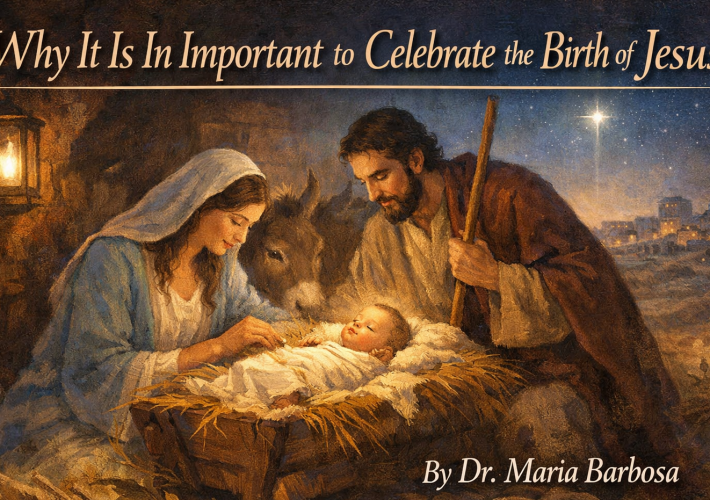Within God’s creation. While Genesis meticulously records the visible creation, there exists a realm of invisible beings that predates the material world-a realm inhabited by celestial entities known as angels, spirits, seraphim, and cherubim. These ethereal beings, as depicted in the Bible, possess personalities, mental faculties, and the power of volition, yet lack physical, visible bodies.
Unseen Messengers in Biblical Narratives
Delving into the Book of Job (Job 1:6, 2:1), we encounter the enigmatic “sons of God” presenting themselves before the divine presence-a portrayal that unmistakably alludes to angels. The term “angel” finds its roots in the Greek word “angelos,” meaning “messenger,” resonating with the Hebrew equivalent, “mal’akhas.” Across major religions, references to these celestial beings are pervasive, forming a universal belief that transcends theological boundaries.
Angelic Forms: From Human Resemblance to Otherworldly Apparitions
Angels, described as spirit beings (Hebrews 1:14), transcend physical forms but possess the ability to manifest in human likeness. Instances in the Bible, such as the visitation to Abraham (Genesis 18:1-19), depict angels in the semblance of ordinary men. However, their appearances can be multifaceted-sometimes, they take on forms beyond human comprehension, invoking awe and, at times, terror.
Beyond Human Likeness
In certain encounters, angels assume forms beyond the human, evoking peace in those who witness their otherworldly presence. The common refrain, “do not be afraid,”. Yet, not all angelic manifestations instill peace; some, like Mary’s encounter, evoke confusion rather than peace.
Wings, Voices, and Otherworldly Beauty: Angelic Characteristics
The imagery of angels often includes wings, with references in the Bible to cherubim and seraphim adorned with these ethereal appendages (Exodus 25:20, Isaiah 6:2). Voices of angels resound in praise throughout the scriptures, and their descriptions in Daniel 10:5-6 and Matthew 28:3 highlight an extraordinary beauty that befits beings in constant communion with the Almighty.
The Hierarchy of Angels: Distinct Levels and Tasks
God, in his infinite wisdom, created a hierarchy of angels with distinct tasks and responsibilities. From Angels serving as protectors to Archangels bearing messages of healing and hope, each class fulfills a specific role. Cherubim bring joyous melodies and aid in overcoming insomnia, while Seraphim protect the dreams of the soul. Powers act as healers, bringing peace to our lives, and Principalities form the God army, safeguarding humanity from external threats.
Angels and Their Purpose: A Divine Symphony of Service
According to Hebrews 1:14, angels are “ministering spirits” serving God by assisting those deemed “heirs of salvation” (Matthew 18:10, Revelation 5:11, 22:8, 9). Their activities, conducted under divine supervision, categorize them as benevolent spirits, working for the greater good. Angels embody the epitome of beauty, a reflection of their constant proximity to the glory of Almighty God.
Angelic Guidance: Instruments of God’s Mercy
Angels, existing long before the creation of the world, possess the ability to briefly appear in forms relatable to individuals. However, their primary mode of communication aligns with the in-spirit temperament, providing guidance and assistance when invoked through prayer in Jesus’ name.
A Divine Symphony: Ten Different Levels of Angels
God’s creation extends to ten different levels of angels, each with a distinct purpose. From Angels offering protection against fears and phobias to Principalities defending against enemies and upholding justice, the hierarchy of angels reflects divine order and benevolence.
Angels in Our Lives: Divine Messengers of Peace
Angels, pure invisible spirits, are not manifestations of deceased humans (Hebrews 1:14). Rather, they serve as ministering spirits, delivering divine messages and protecting believers, as exemplified throughout the Old Testament. God, in His mercy, utilizes angels in various forms, ensuring the delivery of messages that resonate with the peace and love inherent in His divine plan.
Recognizing True Angelic Messages
When angels convey messages from God, they often adopt familiar forms, radiating peace and gentleness. It is crucial to discern the source of the message; a genuine angelic encounter invokes tranquility, while a lack thereof may signal a message not ordained by God.
Gratitude and Worship: Acknowledging the Divine Source
In the grand tapestry of angelic interactions, worship is reserved for the Almighty alone. Angels, in their humility, redirect worship to God, emphasizing that they are fellow servants with humanity (Revelation 19:9,10; 22:8, 9). All credit for the peace bestowed upon believers belongs to God, who orchestrates His divine power for our perfection and conviction.
A Divine Shield in Psalms
In the sacred verses of Psalms, the promise resonates: “The angel of the Lord encamps around those who love Him, and delivers them” (Psalms 34:7). This profound declaration unveils a celestial reality-God utilizes angels as guardians, surrounding and safeguarding those who hold love for Him. The poetic beauty of Psalm 91 further illuminates this divine intervention: “For He will command his angels concerning you to guard you in all your ways; they will lift you up in their hands” (Psalm 91:11–12). Indeed, angels play a pivotal role in God’s design, offering protection and divine deliverance.
A Glimpse into Angelic Ministry: Guardians at Life’s Threshold
The narrative extends beyond earthly bounds, touching upon the unique ministry of angels during the transition from life to eternity. Luke 16:22 suggests a special role for angels at the moment of believers’ departure. As individuals embark on their journey beyond the mortal realm, angels, emissaries of God’s grace, guide them with heavenly care.
The Unveiling of Satan: A Fallen Angel and the Darkness Within
Yet, amid the celestial splendor, a somber figure emerges-the once-illustrious Lucifer, now known as Satan. Isaiah 14:12-17 recounts the rebellion led by Lucifer against God, resulting in the extinguishing of his celestial light. In this rebellion, darkness became a symbol of evil and sin. Lucifer, the first revolutionary leader, epitomized a will opposed to God’s, ushering in a narrative of spiritual conflict.
The Imperative of Spiritual Maintenance: A Call to Self-Examination
In our earthly journey, the call for spiritual maintenance echoes through the scriptures. Obedience to God’s word, as outlined in Isaiah, involves a continuous examination of our hearts and actions. Isaiah chapter 14 articulates Lucifer’s declaration of independence, marked by ‘I wills’ as he waged war against God. The imperative for spiritual maintenance lies in our adherence to God’s commandments and constant self-reflection.
Salvation Assurance: Walking in the Light of God’s Word
The apostle Paul, a chosen vessel for the Gentiles’ salvation, issues a sobering warning in Galatians 5:21 and 1 Corinthians 6:9. Those who persist in the acts of the sinful nature risk exclusion from the Kingdom of God. Salvation, Paul asserts, is assured through a life aligned with God’s will.
Living a Spiritual Lifestyle: The Litmus Test for Salvation
A pivotal aspect of maintaining spiritual health involves living a lifestyle aligned with the spirit rather than succumbing to the sinful nature. Galatians 6:4-10 reinforces the concept of individual accountability, emphasizing that we are judged based on our thoughts and deeds, independent of external influences.
Testing Your Salvation: A Journey of Spiritual Vigilance
The call to live a spiritual lifestyle is intertwined with the imperative to test one’s salvation. Persistent engagement in the acts of the sinful nature can lead to spiritual blindness, a perilous state where sin ceases to be perceived as such. Individuals are urged to allow God to reveal their hearts, acknowledging their need for divine guidance.
Hope in Christ: A Beacon of Transformation
Amidst the challenges and reflections on past shortcomings, the beacon of hope in Christ emerges. The narrative pivots to the transformative power of faith, illustrating how a daily infusion of hope in Christ can propel individuals toward their goals and triumph over challenges.
Faith in Action: Overcoming Labels and Embracing Change
The article culminates in a call to action, encouraging individuals to envision a new narrative for themselves. Rather than being defined by past mistakes or societal standards, the transformative power of hope in Christ offers a fresh perspective. It is an invitation to break free from limiting labels and embrace a journey of continuous change and growth.
Embracing the Angelic Promise: A Journey of Faith and Transformation
In conclusion, the intertwining themes of angelic protection, spiritual maintenance, and hope in Christ converge to offer a comprehensive narrative. From the protective wings of angels guarding believers to the imperative of spiritual self-examination, the article navigates the complexities of faith and transformation. It is a testament to the enduring promise that, indeed, “The angel of the Lord encamps around those who love Him, and delivers them.”
By: Maria Pinto Barbosa PhD #DrBarbosa WhatsApp (386)206-6325
Certified as School Board of Education / PHD-Doctor of Philosophy in Cristian Clinical Counseling
ACCEL-Holistic Life Coach / Founder-Director of ACCEL Educational Leadership
Specialized on Temperaments – Personalities
Pastor Christian Minister Clergy / Bachelor of Theology in Pastoral leadership and Certified EETAD Theology
Discover more from Dr Maria Barbosa
Subscribe to get the latest posts sent to your email.





